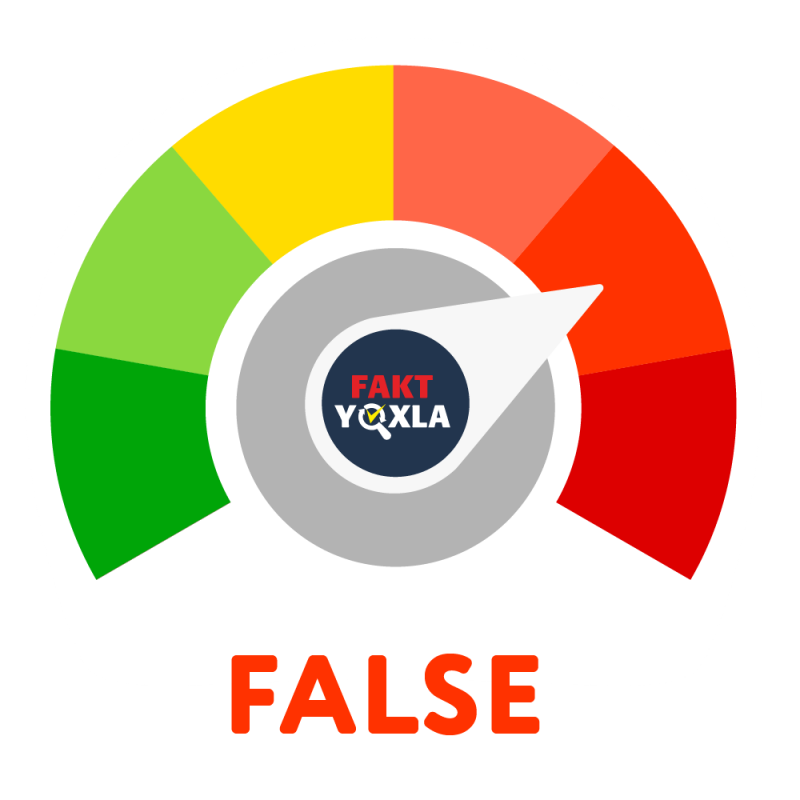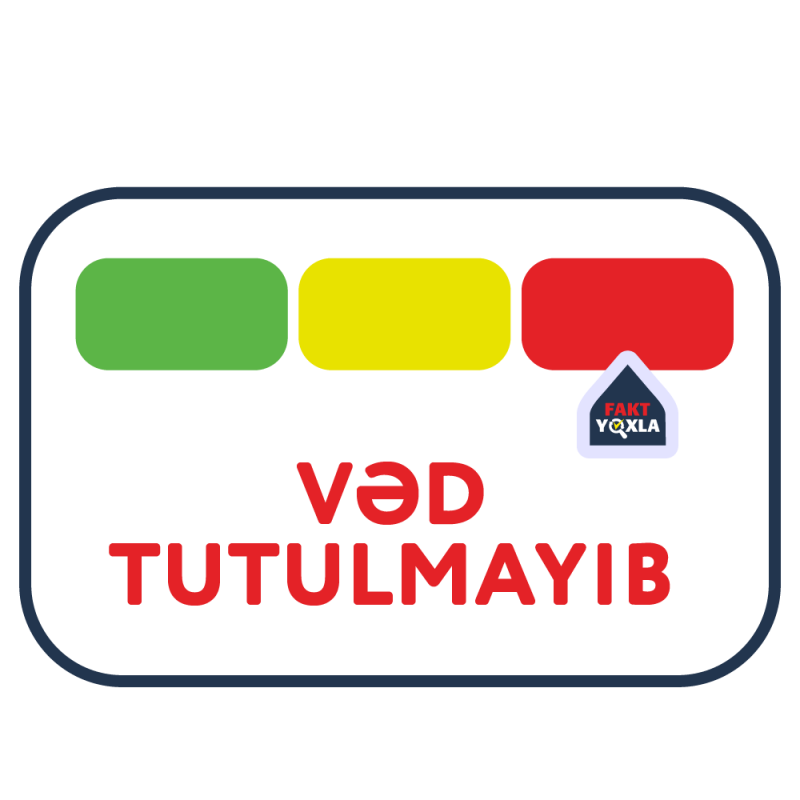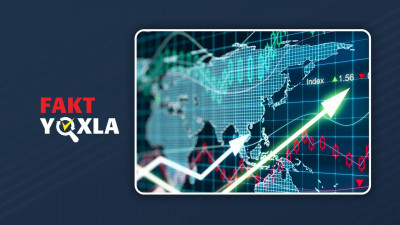From January 1, 2023, the minimum monthly wage was raised from 300 manats to 345 manats, and the minimum pension was raised from 240 manats to 280 manats.
This is stated in the Order signed by President Ilham Aliyev on January 5.
Fakt Yoxla analyzed the possible effects of salary and pension increases on different population groups in the country.
Article 155 of the Labor Code states that the minimum wage is a social norm that determines the lowest level of monthly wages for unskilled labor and service, taking into account economic and social conditions.
People working full-time in the country as salaried employees (with a labor contract and in exchange for a monthly salary) cannot be paid less than this amount.
According to official information, the economically active population in Azerbaijan is equal to 5 million 304 thousand people. 1 million 710 thousand of them (32 percent) are salaried employees.
The official announcement regarding the increase of the minimum wage stated that as a result of this decision, the salary of 700,000 people who receive the minimum wage and whose salary is calculated on the basis of the Unified Tariff Schedule (UTS) will increase.
450,000 of these people work in the public sector of the economy, and about 250,000 work in the private sector. From this point of view, it turns out that the decision on the minimum wage increase will affect the income of only 13 percent of the economically active population.
On the other hand, an increase in the minimum wage will also increase the costs of a part of the population.
According to Paragraph 5.1 of Article 14 of the Law on Social Insurance, compulsory state social insurance fee for insured persons who earn income from non-salaried work is paid in the amount of 50 percent of the minimum monthly salary in the construction field, 25 percent in other fields: 100 percent in the city of Baku, 90 percent in the cities of Sumgayit and Ganja, 80 percent in other cities, 60 percent in administrative-territorial units and settlements that are the administrative center of district administrative-territorial units, 50 percent in rural areas.
For example, if an individual entrepreneur operating as a natural person in Baku used to pay 75 manats in social payments (150 manats for those working in the construction and trade sectors), and after the minimum wage reaches 345 manats, their monthly expenditures related to social payments will increase to 86 manats and 25 gapiks.
The minimum wage increase will also increase the compulsory health insurance premiums paid by private entrepreneurs.
The Law on Health Insurance states that the monthly payment of compulsory health insurance for those who perform entrepreneurial activity as an individual is equal to 4 percent of the minimum wage. In this regard, when the minimum wage is 300 manats, if private entrepreneurs paid 12 manats per month for compulsory health insurance, this amount will be 13 manats and 80 gapiks.
According to official information, raising the minimum pension amount from 240 manats to 280 manats will increase the income of 100 thousand pensioners.
According to the last statement, the number of labor pension recipients in Azerbaijan is equal to 1 million 204 thousand people. Therefore, this decision will cover only 8.3 percent of pensioners.
On the other hand, increasing the minimum pension amount will reduce the chances of some citizens to retire.
According to the Law on Labor Pensions, there are additional requirements for pensions to be granted to citizens after reaching the age of 65. So, in order to receive a pension, citizens must live for 65 years, and must also have 25 years of work experience or accumulate a minimum pension capital.
According to the law, the minimum pension capital is equal to 144 times the minimum pension amount (a 12-year amount).
When the minimum pension amount was 240 manats, if the minimum pension capital in the country was equal to 34 thousand 560 manats, after the increase, it will be 40 thousand 320 manats. This means that those who have no more than 25 years of work experience should collect about 6,000 manats more pension capital in order to retire.
Thus, 13 percent of the economically active population will benefit from the minimum wage increase. Adequately, the social and health insurance costs of individuals who perform entrepreneurial activities as individuals will also increase.
The minimum pension increase will cover 8 percent of pensioners. This increase will reduce the chances of some citizens to retire.












